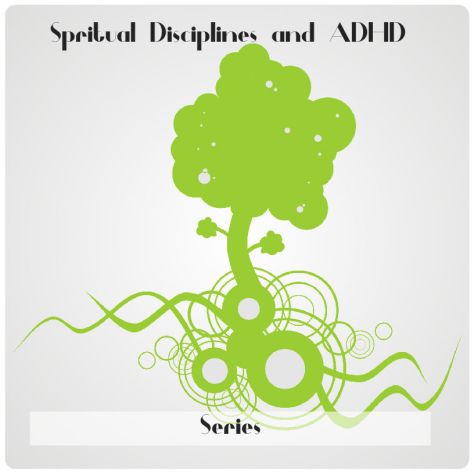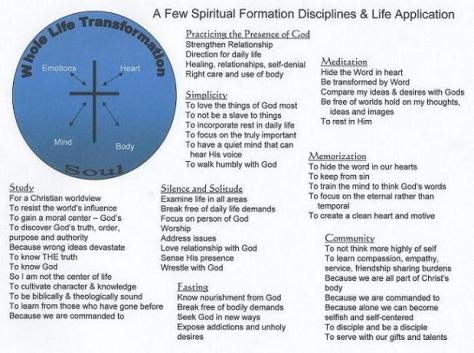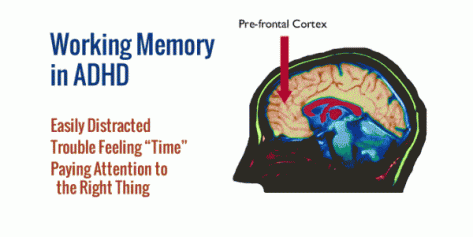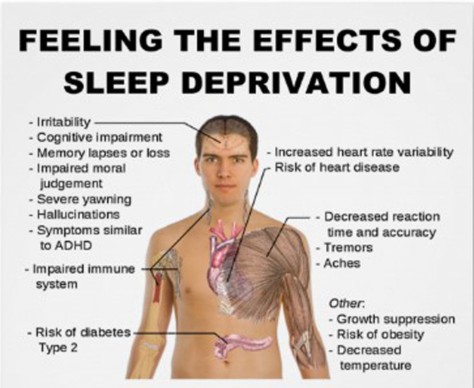Over the next several weeks I will be posting a series about practicing the Spiritual Disciplines (Spiritual Formation/Spiritual Practices) for those with ADHD. During this series I will cover a variety of disciplines: Bible reading, Meditation, Solitude, Fasting, Sabbath, Service, Prayer, and Worship, and how those of us with ADHD can engage in these practices.
This week will start with the Spiritual Discipline of reading the bible.
BASIC DEFINITION OF A SPIRITUAL DISCIPLINE:
- A deliberately self imposed habit that nurtures spiritual health and fosters spiritual growth leading to maturity.
- Deliberately self imposed actions to alter existing life and thought patterns, thereby breaking the normal cycle of life and breaking the focus on the mundane to contemplate the sublime.
- Repetitious actions driven by spiritual decisions rather than natural environmental reactions.
- Spiritual exercises to develop “Sacred Rhythms” to engage in intentional spirituality in the pursuit of intimacy with God.
- (Source: authenticdiscipleship.org)
For those with ADHD who have trouble with focusing, sitting still, and developing consistent reading practices; developing the habit of reading or studying the bible can seem like a daunting spiritual discipline. I used to be an avid bible reader when I was working towards my Master’s degree. I loved doing the research into the history of near eastern culture. I also enjoyed finding out the Greek and Hebrew meanings of words that we often misuse in the English language. Lost in translation had a new meaning for me after I finished my courses.
Eventually my time as an active student came to an end and so did my passion for studying the bible. I’m not quite sure where my motivation went, but it was probably in the same place as my discipline. I went for a period of time where I was not interested in reading the bible. It felt as if I would develop a headache every time I looked at a bible; forget about opening it. During this time I switched to reading a variety of theological books, but eventually I accepted the fact that nothing can take the place of reading the actual bible.
To help you develop a desire and a habit of reading/studying the bible, I’ve listed a few suggestions you might want to try.
Translation Style:
There are plenty of translations of the bible. Some of the most popular are KJV, NKJV, NIV, ESV, and Living Translation. It’s important to find a translation that you enjoy reading and one that is at your level of reading. If you do not have an advanced vocabulary reading the KJV will be a challenge for you and eventually you will lose interest in reading something you can’t comprehend. Some people prefer to read The Message, this a good option for people who want to read the bible as a paraphrase rather than a translation. It is also at an easy reading level.
Others like myself prefer to have more than one translation on hand. I use the NRSV and the NASB. For reading the Proverbs, Psalms, and Ecclesiastes, I love to read these books in the KJV and NKJV version out loud during personal devotional time.
What are you Reading About?:
One way to develop an interest in reading the bible is to select a topic that is of interest to you. The bible is filled with multiple stories and each of them have a lesson for us to learn from. I’ve enjoyed reading various studies about different women featured in the bible. I’ve also enjoyed topics that relate to areas where I needed to focus on personal character development. What would you be interested in learning about?
-Women of the Bible
- Mary (all of them), Hagar, Leah and Rachel
-Characters from the bible:
- St.Paul, Saul, King David, Solomon
-Specific Topics for Spiritual Development:
- Conquering Fear
- Prayer
- Fruits of the Spirit
- Love
-You might want to read scripture that speaks to a specific season of your life:
- Divorce
- Fertility Issues
- Parenting
- Grief
- Depression
Keeping a Record:
Are you the type who likes to keep a running journal about your life or spiritual life? Then you would likely benefit from keeping a journal for writing your thoughts and reflections about the bible passages that you are reading. Personally I no longer enjoy journaling my bible studies and it has helped me that I’ve given up that habit for now. I like the freedom of reading the bible and then allowing what I’ve read to sink in throughout the day. If you are a journaling type of person find writing materials that suite your style: online journaling, blogging, notebook, etc.
Structured or Do Your Own Thing?:
If you are the type of person who needs to have structure, there are many bible reading plans available. You can pick them up at a Christian bookstore or find a variety on line. There are options such as, topical studies, read the bible in a year, or seasonal readings such as Lent and Advent.
If you are the type that doesn’t like structure it is important to find a less structured reading plan in order to stay on track. If you approach bible reading without any structure whatsoever, you are less likely to make reading a habit and eventually you will quit reading. Structure is very important in managing ADHD.
Time Factor:
Everyone, and I mean everyone has time to pray and read the bible every single day. We tell ourselves we don’t have time and it is easy to believe we don’t. But think about it? When was the last time you heard someone say they don’t have time to go to the bathroom in a day, or don’t have time to eat or drink over a 24 hour period. Have you ever heard a mother say that she doesn’t have time to hold or feed her baby? Never. The fact is we make regular and consistent time for things that matter to us; having ADHD doesn’t change this.
Only you know what times are best for you to make time to read the bible. To start, it doesn’t have to be an everyday activity. If you are not used to reading the bible, you can start with a few scheduled times per week and make you way up to as many days as you need to. I don’t generally read the bible on weekends, Saturday and Sunday are the days when I catch up theological blogs, and reading.
If time management is a major weakness of yours, it would be best to start with readings that you know will only take 10-15 minutes of your time. Again, the idea is to start easy and work your way to increased times. What is most important is quality time taking in the word.
However you choose to engage in reading the bible, it will enrich your walk with God. The bible is filled with God’s promises to us. It is through the bible that we read of His love for us and His desire for us to love and care for one another. Let’s not allow ADHD prevent you from experiencing the power of the word in your life.
Bible Study Tools
Bible Study Tools Online
Bible (More than one translation)
Commentaries
Concordance
Paper (e.g. journal, diary, notebook, etc.)
Internet Sources: bible study sites, video series, online sermons
Dictionary
Lexicon
Bible Reading Plan
Bible study curriculum (e.g. Beth Moore, Kelly Minter, etc.)
Audio Bible
Smartphone Apps
Charts/Outlines/Maps
Devotional Books








